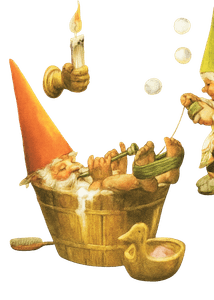
Bio Reishi - High Potency Extract 30 ml
15,00 €
Origin: China
Ingredients: 1:1 Organic Alcohol, organic dried Reishi mushroom (Ganoderma Lucidum).
NO additives, coloring, added sugar, gluten, soy or GMOs.
Keywords: Adaptogen, anti-inflammatory, antioxidant, antiviral, cardio tonic, hepatoprotective, nervine, vaginal infections, anti-fungal, kidneys health support, sleep disorders.
Energetics: Bitter, warm, neutral.
Revered for centuries in Daoist and Eastern herbal traditions, Reishi (Ganoderma lucidum) is known as the “mushroom of spiritual potency.”
It gently nourishes the nervous system, supports deep restorative sleep, balances the immune response, and strengthens the heart and spirit.
Its adaptogenic essence helps the body find equilibrium in times of stress, bringing calm energy and grounded vitality.
Dosage
Intervention: 5–10 drops daily.
Therapeutic use: 10–15 drops, up to 3 times per day.
Directions
Shake well before use.
Take directly on the tongue or dilute in half a glass of water or tea, 15–30 minutes before meals.
For long-term use, follow a 6-days-on / 1-day-off rhythm.
Mode of Action
Ganoderma lucidum shows strong antioxidant and anti-inflammatory activity. Studies demonstrate it can reduce infarct size and neuronal cell death in ischemic brain tissue. In animal models, 3–7 days of pretreatment lowered hippocampal and serum markers of oxidative stress (malondialdehyde) and inflammation (TNF-α, IL-8), while increasing protective superoxide dismutase activity.
G. lucidum also has a calming, sleep-supportive effect. In research on freely moving rats, three days of G. lucidum extract significantly increased total sleep time and NREM sleep at 80 mg/kg, without altering REM or slow-wave sleep.
Helpful Combinations
Chaga extract (Blissdorf)
Cordyceps extract (Blissdorf)
Ethnobotany
Ancient Chinese texts discuss the six colors of Reishi with the most common and well-known being the red variety; other colors include blue, yellow, black, white, and purple.
Traditional Chinese Medicine (TCM) practitioners prescribe Lingzhi to influence the heart, lungs, liver, and kidney channels, to balance Qi (the body’s life force), calm the mind, and relieve cough and asthma. As we discuss in our article, The Benefits of Red Reishi and the 5 Other Color Types, mushroom expert Zhi-Bin Lin notes that modern pharmacological studies show Reishi’s potential for supporting cardiovascular health. He goes on to suggest that these benefits could possibly relate to the “heart-boosting” effects recorded in Traditional Chinese Medicine texts. Reishi mushrooms are included in China’s State Pharmacopoeia of the People’s Republic of China (2000) and are touted to balance Qi, ease the mind, and support respiratory health. Reishi remains a cornerstone of natural medicine in Eastern cultures. With globalization and the growing number of people looking for natural solutions to support their health, scientists are now investigating the validity of the health claims surrounding this traditional herbal remedy.
History
The Reishi mushroom was first discovered by Chinese healers more than 2,000 years ago in the Changbai Mountains. This northern mountain range – which translates to “Perpetually-White Mountain Region” – is widely known for its frigid conditions, but the base of the mountain is home to a large temperate hardwood forest where the rare Reishi mushroom flourishes.
Ancient Chinese texts refer to the mushroom as an elixir of immortality, and note secret locations where the fungus was thought to grow. Healers believed that the Reishi mushroom had potent anti-aging properties, and it has long been used as a talisman of luck, healing, and wellness in Chinese culture.
The Reishi mushroom is still commonly used by physicians across Asia to treat a wide range of maladies and health concerns, and use among Western physicians and healers is growing.
Ancient Chinese herbalists called Reishi Lingzhi (灵芝) because it means “herb of spiritual potency.” Emperor Yan, the first (and most legendary) in the line of ancient China’s rulers, is the founding father of the farming practices and tools that became the foundation of China’s agriculture. He is also the attributed author of the “bible” of medicinal plants: Shennong Ben Cao Jing (a.k.a. Materia Medica). Of Reishi, he wrote, “If eaten customarily, it makes your body light and young, lengthens your life, and turns you into one like the immortal who never dies.”
Contra-Indications
Taking Reishi mushroom may be riskier if you have low blood pressure or are taking therapy to raise your blood pressure, are taking diabetes medications, or have immune system disorders or medications.
Interactions
Reishi mushroom may increase the risk of bleeding.
Talk to your doctor before taking Reishi mushroom if you are using anticoagulant or antiplatelet drugs such as:
Aspirin, Nonsteroidal anti-inflammatory drugs (NSAIDs)
Warfarin, Heparin







